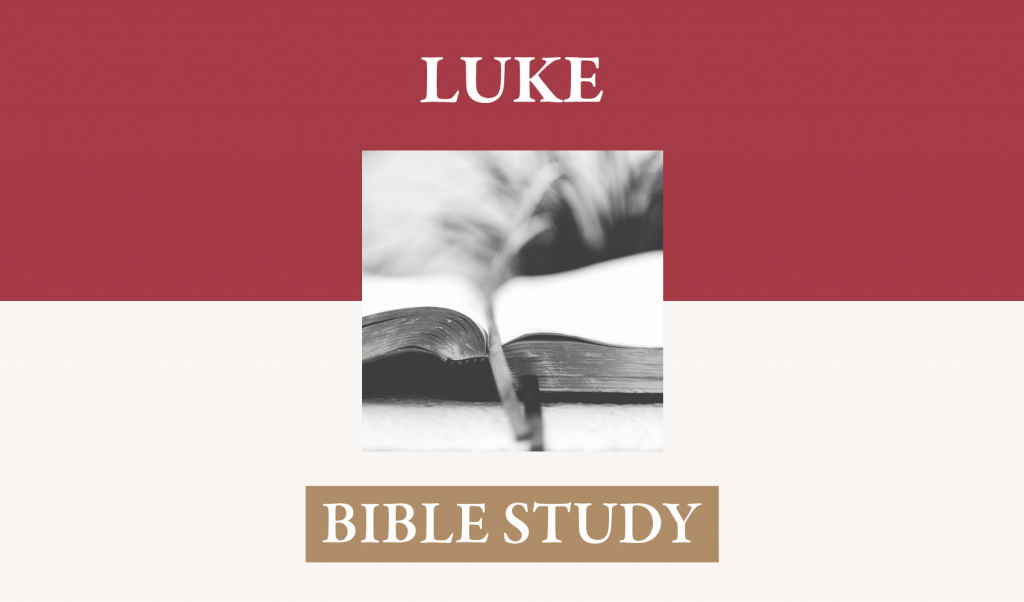Lesson Focus: This lesson is about God’s plan to bring change to the world through His
Son, Jesus, and how we can become involved in furthering that plan.
Embrace the Message: Luke 2:8-16.
[8] And in the same region there were shepherds out in the field, keeping watch over their flock by night. [9] And an angel of the Lord appeared to them, and the glory of the Lord shone around them, and they were filled with fear. [10] And the angel said to them, "Fear not, for behold, I bring you good news of great joy that will be for all the people. [11] For unto you is born this day in the city of David a Savior, who is Christ the Lord. [12] And this will be a sign for you: you will find a baby wrapped in swaddling cloths and lying in a manger." [13] And suddenly there was with the angel a multitude of the heavenly host praising God and saying, [14] "Glory to God in the highest, and on earth peace among those with whom he is pleased!" [15] When the angels went away from them into heaven, the shepherds said to one another, "Let us go over to Bethlehem and see this thing that has happened, which the Lord has made known to us." [16] And they went with haste and found Mary and Joseph, and the baby lying in a manger.
[8-9] Luke turns from the birth to its proclamation. The account shifts attention to shepherds who hear a heavenly announcement of Messiah’s coming. This is the third announcement passage in the first two chapters of Luke [1:5-25 and 1:26-38]. The announcement is not just to a family member, but to people who represent all people. The verse reveals the setting of the proclamation. Shepherds are in the field at night watching over their flock. The shepherds kept night watches in turn as they protected the sheep from robbers and wild animals. The shepherds are a picture of the lowly and humble who respond to God’s message. The heavenly announcement begins with the angel’s arrival. The structure of the announcement is in a standard sequence: appearance, fear, a “do not fear” announcement and a sign. A word of testimony comes from heaven with the arrival of an angel of the Lord. The angel is not named and is not to be confused with the Old Testament “angel of the Lord.” The term, appeared, used by Luke is a common one to describe angelic or supernatural appearances. With the messenger came the bright presence of the Lord’s glory surrounding the shepherds. Such glory will appear again at key points in Luke and Acts in association with Jesus. Such a bright light in the midst of the evening would have been an impressive sight. The response to this stirring divine sign was a natural one: great fear. Such fear is emphasized by Luke’s they were filled with fear. It is like the fear that overcame both Zechariah and Mary when the angel came to them [1:12,29], and such fear gripped the disciples at the transfiguration [9:34]. The encounter with the divine is initially startling and unsettling. With the angel’s coming and God’s bright presence, the announcement follows.
[10-12] The angel begins his announcement by calming the shepherds’ fear, as is common in such appearances. The initial encounter with God or His messenger frightens most who experience it, but the grace of God is such that this fear is quickly removed as an obstacle. God wishes to interact with His creation. The announcement itself contains two descriptions. The announcement is good news, and the birth causes great joy. The placing of joy next to salvation is a key idea in Luke’s Gospel. Clearly the good that God is about to do should meet with great expectation. The joy is for all the people, which is not a statement about both Jews and Gentiles at this point in Luke’s gospel. The entire context up to this point in Luke has been about the people of Israel. Thus, the reference here speaks of blessing Israel. The relationship of Jesus’ coming for Gentiles is something that Luke presents later in his two volumes, especially in Acts. For now, Luke is interested in how Jesus fulfills national expectations, a focus clearly controlled by historical concerns. Of course, the nature of this blessing for the nation is tied very much to the nature of the person who comes, the angel’s next topic. The announcement is significant for three reasons. First, it explains that the reason (for) the message is good news and a cause for great joy is that a messianic Savior is born. This event is not a distant reality; it comes even now. Second, Luke repeats the note of fulfillment [2:4] that the birth occurs in the city of David. Third, the description of Jesus contains three key Christological terms – Savior, Christ, and Lord. The shepherds as common people benefit from the Savior’s birth (unto you). The reader should identify with the shepherds’ perspective as they hear this good news. The personal nature of the address to the shepherds is significant, since it individualizes the message: from good news … for all the people [10] to unto you (the shepherds). What is currently taking place in Bethlehem is of timeless significance. The combination of titles used here is unique. Savior, Christ and Lord do not appear together in any other New Testament text. All three titles appear frequently in the Old Testament, which supplies important background to their meaning here. The Savior word group, when referring to people in the Old Testament, describes a deliverer from enemies, such as a judge. Its primary Old Testament reference, however, is to God, who delivers from various types of peril: enemies that seek to destroy and disease that seeks to kill [Deut. 20:4; Joshua 22:22; Ps. 24:5; 25:5; Isa. 25:9]. Luke intends the reader to see the meaning of Savior in terms of rescue or delivery from peril, in both its physical and spiritual senses. In 1:47, Savior is used to describe the God who delivers by sending Messiah. He is the God who remembers Israel and exalts the humble who fear him, while casting down rulers [1:47-55]. In Zechariah’s hymn, God is praised for sending the horn of salvation to the nation [1:69]. Since Jesus is the one who brings God’s salvation, He can be called Savior in His own right. He is God’s deliverer for God’s people. It is significant that Jesus is described by a title (Savior) that is often applied to God, but the major point here is Jesus’ function as deliverer. The combination Christ the Lord serves to further describe the Savior. There is no explicit Old Testament allusion present in this combination but the individual titles do draw on general Old Testament ideas. For Luke the term Christ or Messiah clearly has regal, Davidic, and messianic connotations. What does the third term, Lord, mean? The use of Lord for Jesus has occurred so far only in 1:43, where it indicates that Elizabeth realizes that Jesus is a more significant figure than John the Baptist. Otherwise, the term in the infancy material is used of God as sovereign deity, which fits its predominant Old Testament usage. For Luke this title will become the key Christological term to describe Jesus. For now, Luke is content merely to present the term from the angelic announcement and not explain it. The term will clearly come to refer to the absolute sovereignty and divine relationship that Jesus possesses as the one who brings salvation. The title does not detract from the main declaration of Jesus as the Davidic Messiah; but its presence here suggests that there is more present in Jesus than his merely being Messiah. Luke now presents a sign of the birth. The sign’s unusual character, the baby lying in a manger, confirms the announcement’s truth. Thus the shepherds are to look for a newly born child lying in a feed trough. What is amazing in the announcement and the sign is who the child is and where he is. One hardly expects to find the Messiah in an animal room. But the Messiah’s humble and common origins fit nicely with the task that He shall bear for all His people, including especially the humble, hungry, and poor [1:50-53]. The Messiah’s life will contain an unusual bookend for a king, since He was born in an animal room and will die with robbers.
[13-14] The shepherds see a portion of the angelic host praising God. Suddenly often refers in the New Testament to actions associated with the supernatural world. It is difficult to translate because the emphasis is as much on the unusualness of the action as it is on how quickly it occurs. The multitude is a select group that comes from the entire heavenly body of angels. They reveal to the shepherds through praise what the result of Jesus’ coming should mean. Heaven addresses earth about Jesus’ significance. The angels offer a brief heavenly note of commendation. While heaven offers praise or glory to God, humans on earth are to have peace. Peace here refers to the harmonious relationship that can exist between God and humans. The peace that God provides in Jesus is a key concept for Luke. God’s peace is limited to those with whom he is pleased, which is almost a technical phrase in first-century Judaism for God’s elect, those on whom God has poured out His favor. In this context, God’s elect would be the God-fearers mentioned in the Magnificat [1:50-53], those who will respond to Jesus’ coming. Thus Luke indicates a difference between those whom Jesus comes for (all people [2:10]) and those who benefit from His coming (those with whom he is pleased [2:14]). In summary, the angelic praise contains two basic ideas: (1) the heavens rejoice and praise God for salvation’s outworking and (2) the people to whom God draws near through Jesus will experience the harmony and benefits that God bestows on His own.
[15-17] The angels’ departure leads the shepherds to discuss what they have heard, and their discussion resolves into the decision to go to Bethlehem in order to see this very thing that God has made known. The announcement sets off a chain reaction. First, the shepherds respond in faith and go to find the child [16]. They tell others what caused them to seek the child [17]. The shepherds’ response in faith and testimony is similar to Mary’s instant response to the word in 1:39. The shepherds’ reaction causes the audience to react to their testimony [18], which in turn leads to a response by Mary [19]. The shepherds move hastily to find the child. What the shepherds see is exactly what the angel promised, a baby lying in a manger. The shepherds reflect a vibrant faith, where the sequence is God’s word, faith, and then testimony. When God’s word comes to pass, testimony should follow. When they had seen the sign of the baby in a manger, the shepherds made known all that the angel had said about the child. Mary, Joseph, and others hear that this child shall be a Savior for them, Christ, the Lord. The full understanding by people will come later. But for now to the voices of the angels is added to the testimony of humans. What they see and hear, they report.
Share Your Experience: Luke 2:17-20.
[17] And when they saw it, they made known the saying that had been told them concerning this child. [18] And all who heard it wondered at what the shepherds told them. [19] But Mary treasured up all these things, pondering them in her heart. [20] And the shepherds returned, glorifying and praising God for all they had heard and seen, as it had been told them. [ESV]
[18-20] The response of all who heard the testimony of the shepherds was wonder. This response of marvel or wonder occurs frequently in the infancy section. However, its presence need not suggest the presence of full faith. Rather, marveling reflects the surprise of those who encounter God’s act or revelation. Luke’s choice of terms in verses 18-19 contrasts this corporate response and Mary’s private response. But [19] presents Mary in contrast to the hearers in verse 18, and the use of wondered to summarize the hearers’ response stands in contrast to treasured to describe Mary’s ongoing meditation. This contrast indicates that she reflected on the events in a way that the hearers did not. Luke is saying that the report was circulated and caused a stir, but it is not certain that he is saying the city responded concretely to the birth. The report tickles the crowd’s ears, but it may have missed their hearts. However, the shepherds did believe [20]. Thus Jesus’ birth brings a variety of responses. Mary treasured or engaged in deep reflection on what was taking place. This reflection is described more fully by the word pondering, which in this context refers to a type of contemplation that attempts to put thoughts together into an understandable whole. The shepherds, having seen the sign, returned home. But they returned with their faith confirmed and deepened. All they had heard, they had also seen come to pass. This produced a sense of joy in them, as they honored God with glory and praise. The realization of the message led to praise, just as the angels offered praise in 2:13-14. Glory can be offered in a variety of relationships, but here it refers to verbally giving honor to God for His acts. What the shepherds saw in Bethlehem was in agreement with what they had heard from the angels. God’s message through the angels had come to pass, leading to praise for God’s work. The shepherds had witnessed the start of God’s work in Jesus and felt honored to share in the event.
Expect Opposition: Luke 2:33-35.
[33] And his father and his mother marveled at what was said about him. [34] And Simeon blessed them and said to Mary his mother, "Behold, this child is appointed for the fall and rising of many in Israel, and for a sign that is opposed [35] (and a sword will pierce through your own soul also), so that thoughts from many hearts may be revealed." [ESV]
Did Joseph and Mary marvel because Simeon’s prophecy in 2:31-32 revealed a new dimension to Jesus’ ministry not previously revealed to them? Or was this simply a normal reaction in the experiencing of a divine revelation or the witnessing of a miracle? The latter is more likely. Simeon addressed his words to Mary rather than to Mary and Joseph. This may be because of Mary’s unique relationship to Jesus due to the virginal conception or due to Joseph’s death pre-dating the crucifixion, so that a sword could not pierce his soul. The prophecies concerning John the Baptist given at his birth [1:68-79] are now paralleled by prophecies concerning Jesus at His presentation in the temple. Luke may have been referring here to one group that falls (humbles itself) and rises (is lifted up by God). If so, this saying is to be interpreted positively and stands in contrast to the sign being spoken against, which is negative. On the other hand Luke may have been referring to two separate groups, one of which falls (negative) and the other of which rises (positive). The latter appears more likely and indicates that there is a double significance to Jesus’ ministry. For the humble and poor it is positive, salvation; for the haughty and rich it is negative, judgment. This twofold aspect of the coming Messiah is found both in the Old Testament [Isaiah 8:14; 28:16-17] and the New Testament [Rom. 9:33; 1 Peter 2:6-8]. Jesus’ rejection by His people, which was already known to Luke’s readers, was announced early in His infancy. This verse foreshadows such passages as Luke 4:29; 13:33-35; 19:41-44,47-48; 20:14,17-19. Many here and in 2:35 should be understood in the Semitic sense of “all.” Thoughts from many hearts indicates one of the purposes for Jesus’ coming. This should be understood negatively here because in its other uses in Luke (five times) and in the rest of the New Testament (eight times) it is always used in a negative sense of revealing sinful thoughts.
Questions for Discussion:
1. What are the three reasons for the significance of the angel’s announcement? What is the meaning of each of the three Christological terms: Savior, Christ, Lord?
2. Compare 2:10 to 2:14. How is the baby’s birth good news to all people yet only those whom God is pleased will receive His peace?
3. Compare and contrast the reaction of the people, Mary, and the shepherds to the angel’s announcement of who this baby was. Note that the birth of Jesus brings a variety of responses, just as it does today.
References:
Luke, Volume 1, Darrell Bock, ECNT, Baker Academic.
Luke, Robert Stein, NAC, Broadman.

















